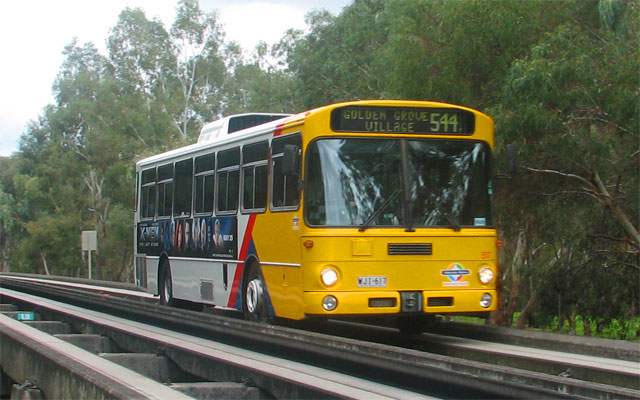What the actual fuck⁈ “Batteries can catch on fire.” Sure, whatever could go wrong with a 1000l tank of FUCKING GASOLINE.
AAAaaaaHHhh I hate people!
Going with the “batteries catch on fire argument” is stupid. “Batteries are heavy and expensive” is probably more compelling. But yeah, wires are better solution for things going in fixed routes.
The ammount of water required to put out a normal car is infinitely less than the amount required to put out a battery fire.
Not to mention the extra weight, nor the retention loss per recharge meaning we need to change batteries every 2-4 years polluting a lot more, we ain’t even talking about the energy loss when doing the conversion to electric and then again to mechanical.
The electric transport is the way to go in the future, but firts it needs to have a solid foundation, and nuclear is the way to go at least in this moment. Otherwise we are only making things worse.
Edit for those wondering about the battery degradation: https://www.geotab.com/blog/ev-battery-health/
we need to change batteries every 2-4 years
Wait, what‽ No. We don’t need to change batteries every 2-4 years. That’s what you do with TV remote controls and temperature sensors, not electric car batteries, LOL!
Electric car batteries are made to last at least 7 years (from a warranty standpoint) but in reality it’s more like 10. Not only that but they’re not single, gigantic objects. They’re made of lots of “cells” so if one of them is going bad you can replace just that one bad cell.
Anecdote: The batteries in my Prius lasted 15 years before I had to replace one of the cells. Then a year later I had to replace another one. A year after that I sold it so I have no idea how the batteries are doing right now but I’m sure another cell would probably need to be replaced by now 19 years in service).
I’d also like to point out that the latest electric car batteries are vastly superior to the ones in my Prius.
Yeah, what I’ve heard is that water cooling the batteries (like almost every EV does now) massively extends the life. Early Prius batteries had no cooling and the heat degraded them faster. 15 years is a pretty good life still.
On the subject of battery warranty:
The federal government requires manufacturers to offer an eight-year/100,000-mile warranty on all EV batteries. California does one better, mandating a warranty of 10 years or 150,000 miles. Some companies will cover a battery only if it completely stops working, while others will replace the battery if it falls below a certain capacity, usually 70% of the original, while still under warranty.
It’s important to note, a degraded battery, even with 50% of its original capacity is still useful. Someone who doesn’t need the range could drive it, or the battery could be taken apart, and have the cells repurposed or recycled. Lithium and some of the other rare metals used in batteries are quite valuable for recycling, and our abilities to do so are getting better every year.
Electric car batteries are made to last at least 7 years (from a warranty standpoint) but in reality it’s more like 10. Not only that but they’re not single, gigantic objects. They’re made of lots of “cells” so if one of them is going bad you can replace just that one bad cell.
Sincere question, what happens with the second hand electric vehicle market? New electrics make a ton of sense, but in my mind the ‘used car’ market becomes essentially unobtainable for poor folk. If a 12 year old electric vehicle hits the market, eventually the second or third owner is going to have to replace the batteries and poor people can’t afford the 5000 plus labor to get new cells for it.
This isn’t a situation that affects me, at the moment, but there are millions of people around the globe who buy the $1000 car and drive it until it just doesn’t go anymore. I don’t see that being an option for electrics.
Sincere question, what happens with the second hand electric vehicle market?
Doesn’t and won’t exist. And it might be a “conspiracy theory” but I do think it is totally intentional.
Sure, that replacement time isn’t 4 but 15-20 years (well, except early Leafs that didn’t have battery temperature management of any kind), but my 20 year old car’s gas tank fits just as much gas as it did 20 years ago.
If you think any ICE car is going to outlast an electric you’re mistaken. EVs have a fraction of the moving parts of an ICE car and as a result are expected to last a lot longer. 30+ years for an electric car isn’t out of the question. Especially the latest ones with their water cooled batteries.
The number of moving parts is just one (albeit a great big) factor as to why EVs are a lot more reliable and will last a lot longer than an ICE car. There’s other elements as well such as the regenerative braking… You basically have an expiration date that tells you when to replace the brake pads instead of a number of miles (or thickness). Because the brake pads themselves will never wear enough from normal driving to warrant replacement. Instead you have to figure out the replacement time based on exposure to natural radiation (LOL) and seasonal hot/cold cycles.
The magnets in the motors lose about 5% of their strength every 100 years. So again, the thing you’re accounting for when figuring out how long the motors will last is the exposure to natural radiation degrading the insulation of the wires (LOL).
I’m aware an ICE car requires more maintenance. But, two things. My gas tank doesn’t get smaller over time and good luck taking your Tesla or Chevy Bolt to an unauthorized repair shop and let them try to fix anything without access to OEM diagnostic tools. Yes, new ICE cars are also full of this bullshit, but hey, my 20 year old ICE car isn’t!
Good luck finding or affording gas in 20 years!
You’ll have to go down to the boat dock to fill up your ICE car because there won’t be gas stations anywhere else.
I didn’t mean it literally, but easily it could be considering how u lose performance if u use a battery powered vehicle in somewhere to hot, or to cold.
Also, look how much degradation suffers the battery’s https://www.geotab.com/blog/ev-battery-health/
According to Geotab a Tesla will be at 90% of it’s initial State of Health (SoH) after 5 years of use while a Leaf (which is well-known for shit thermal management and poor battery quality) will be at 80%. That’s worse than their other charts which show averages of 85% SoH in an equivalent amount of time.
Regardless, even operating at 80% after five years is completely fine. The curve isn’t really linear anyway so after about 10 years the batteries will likely be operating at about 70% of their original SoH in the worst case scenario.
Also consider that the price of lithium ion batteries has dropped consistently year over year for the past decade. There was a bit of a hiccup because of COVID but that’s over now and the price is continuing to drop. That means the cost of a replacement battery pack in 10 years will likely be 60-90% cheaper (if the current trend continues) than it is today.
So? First of all, my platina already has more than 12-13 years and if I lose any performance if I lose any at all, is gonna be maybe, MAYBE %3. And the real matter is all the implications of making those batteries, contamination, and NO FUCKING IMPROVEMENT OVER A NORMAL CAR, in any case it would be worse. What’s the point of making ur car battery dependent when the energy used to charge it comes from burning the same fossil fuel as before, but now losing energy in the conversions from one kind of energy to another.
That’s without even talking about all the draconian software locks, how companies r starting to lock functions wich already come with the vehicle, how they r trying to kill the right to repair, etc, etc, etc. We don’t even know if changing batteries is gonna be allowed or if its gonna be illegal in some way as apple shenanigans already did it in Mexico where its now illegal to even install linux in a computer u already buy it since it would be “alteration without agreement”. Want a real change and really helping the planet? we need better public transport and changing how we produce electric energy as a whole, because right now just putting a battery in a car and calling it a day is just additional problems to the already present ones in traditional cars.
Just remember that “good” solutions are still preferred over “bad” solutions, and there are never any “perfect” solutions. I see too many people think electric cars are terrible because of what they’ve been told, like the batteries. For me, it’s like “Yeah, but they’re still better than ICE vehicles”. They’ll get better, they’re definitely not perfect, but they are just better
YOu can’t really stop a lithium ion battery fire, all you can do is keep it from catching other things on fire around it, you pretty much just have to let it burn out.
Which means you need to dunk it in a pool. How many of those does your local FD has? 1-5?
and nuclear is the way to go at least in this moment.
Nuclear is about to go away, looking at the statitics.
Nuclear is about to go away FUCK FUCK FUCK FUCK German government
Frankly, I don’t mind as long as I can get enough electricity at any time of the day.
So you don’t mind paying 40 cents/kWh?
I’d be paying that anyway for renewable power given the geography of my country, where nuclear is impossible (ABSOLUTELY impossible). If someone could cut the natural gas from our energy pie and give us clean electricity as a replacement we’d be grateful, given our limited space and relative lack of renewable resources.
That would be if we had nuclear only.
Yeah… not really something I want to see happening.
Ideally solar + nuclear could be the solution we need.
I thought he wanted nuclear energy in cars?
Small nuclear reactor in your car is stupid, but I would love if every city had its own nuclear reactor. Central power and heating!
I’m aware of the Nucleon, that is why I don’t want this in my car. But, I would love to have a tiny nuclear reactor in my neighborhood substation or something
Why would I want a ducking bomb under me ? No, I want I city with solar+nuclear power energizing public transport and THEN maybe u could use a battery personal vehicle to move like an autonomous trolleybus.
My problem with “electric” cars right now is where the energy comes from.
Yup batteries are not the way. By the time the batteries need to be replaced you might have helped slightly but probably not. Batteries is a illusion to going green right now. Just another product that has a demand and an easy market for it.
I think we’re all aware of the costs associated with recycling batteries.
Are you aware of the costs associated with high CO2 levels?
Have to choose the lesser of two evils.
What would be a better alternative if you exclude the use of fossil fuels?
fixed overhead wires, as OP suggested?
You’re aware that diesel is quite hard to catch on fire
That’s why he said gasoline tho
But that’s not relevant for busses
No it’s not. It’s harder to catch fire than gasoline.
It still catches fire easily.
You can toss a lit match into a puddle of diesel and the match will go out. Diesel burns, but since it doesn’t evaporate as fast as gasoline, you don’t have those flammable gases hanging in the air. A trail of diesel that’s being burned at one end will not spread, unlike gasoline.
Okay
Gasoline doesn’t burn that easily, either. Cars with gas tanks don’t burst into flames while sitting powered off in a garage. Even when they get wrecked they don’t usually burst into flames.
On the other hand, gasoline is slowly causing the world to burst into flames…
Well yeah… You need a spark to cause a fire. To have ignition you need oxygen, fuel and a spark.
Nothing burns easily if there’s no spark.
Gasoline burns accidentally when fumes are released, as the stoichiometric mixture has to be pretty specific to combust.
Gasoline in a gas tank does not achieve this mixture. That’s the entire job of the fuel pump and throttle in modern cars. As the other user said, there are lots of sparks and live electricity in a car crash, it’s just not easy to set gasoline on fire or make it explode.
Diesel does not appear to achieve this vapor mixture readily at standard temp and pressure, like gasoline does, and therefore is technically safer in this specific regard.
Okay.
There are plenty of sparks in a car crash.
Gasoline doesn’t burn that easily, either. Cars with gas tanks don’t burst into flames while sitting powered off in a garage
Diesel combusts at 140 degrees. A care could reach those temps in a car accident as well if we’re making that argument.
Gasoline and diesel can be extinguished relatively easily. Extinguishing an EV means throwing it into a tub of water for a day or two
Gasoline vehicles also don’t tend to catch fire spontaneously while parked. That risk exists with every unattended lithium-ion battery undergoing recharging. People technically shouldn’t be plugging their phones in at night and then going to sleep, but everyone does it anyway.
Doesn’t matter much for phones, but when talking EV charging… Night electricity tends to be cheaper when it’s not solar energy season.
Can’t wait for miles of 240V extension cords when EU makes even used non EVs illegal. Yes, millions of city dwellers in apartments totally have a garage to charge in.
There will be solutions by 2050 (the proposed timeframe for having a zero-emissions fleet). For an example, vehicles with combustion engines can still be newly registered after 2035 if they use only CO2-neutral fuels. I think EU would rather ban sale of fossil fuels than ban used cars that can technically burn fossil fuels. If only plant-based fuels are available, it doesn’t matter what the cars can technically burn.
The German big 3 are already developing cars that would only run on non-fossil fuels I believe.
Secondly, chargers near apartment buildings and on sidewalks can be added. We have plenty of time.
And I’m sure Germany will water down the regulations even more so in the end, I’m fairly sure they’ll consider new MHEVs fine after 2035.
And finally, those who can’t charge at home will do so at the charging stations. It’s not a huge issue if you have a battery with 500+ km of range. Might be an issue for i-miev and first gen Leaf owners though.
Unless we get mass producable, cheap fuel like CHOOH2, “cars can use co2 neutral fuels” is translation to “in reality no ICE cars for the mass population”
Secondly, chargers near apartment buildings and on sidewalks can be added. We have plenty of time.
And who will pay for those? My town can barely get enough money to maintain street lights, who will install and maintain the charging infrastructure on streets where it will inevitably get destroyed?
And finally, those who can’t charge at home will do so at the charging stations.
Oh yes, so now instead of 15 minute wait at a gas station I will only have to wait 2 hours before a space is available and then 30 minutes to charge, all while thinking “how much is this quick charge degrading my battery”
There’s 27 years to go till EU’s predicted (not required by law) end of ICE cars. There’s time to invest, time to innovate and hopefully time for your town to reduce crime and gain more resources.
Also HVO is pretty affordable nowadays. Maybe 20% more than regular diesel fuel at most. It is claimed to be carbon neutral. I’m sure something similar will be developed for otto cycle engines.
Also unless you’re planning to use a first gen leaf past the 2050s, quick charging isn’t very bad. All modern EVs have battery cooling and will also throttle charging when the temperature rises. The don’t full on go 350kW for 20 minutes straight.
Waiting 2 hours is solved by installing more chargers. Clearly a regional issue with fuel pumps as well because I never have to wait over 2-3 minutes.
Please don’t put lithium in water; that will make it worse.
Tell that to firefighters.
Meanwhile in Australia:

Bitch I’m a truss
That looks pretty sick ngl
It didn’t suck as a solution when it was implemented. The buses function like small diesel trains; they don’t have to deal with traffic, and can travel faster because they kinda lock in to the rails. It didn’t need as much land as a freeway or cost as much as a dedicated train line because you could just retrofit old buses. Plus the advantage of being able to run a standard bus route at each end of the line, no need for connecting services.
What am I looking at? A diesel bus on rails?
Pretty much. This is the O-Bahn in Adelaide. More info (and the original picture I shamelessly ganked) here: Wikipedia link
Missed opportunity not have these as 3rd rail trolleybuses on these segments
Yikes
We have something similar in the UK, guided busses.
Holy shit, I didn’t know that. I always thought the O-Bahn was a unique piece of Adelaide weirdness. Adelaide has a lot of weirdness.
Meanwhile on the Autobahn:

Steel rails have even less friction
This is a very nitche application. Tom Scott did a video on it.
I’m very aware of that Tom Scott video, don’t worry. It is an okay middleground, but look at the people in comments pointing out the wear on the trolley.
Not from nimbys
WTF Germany how did I not know this was a thing and why aren’t we doing it here in the US?
Question though. Obviously the wires can’t cover every road and the truck sometimes has to drive off the wired road. Do they have small batteries to carry them between the wires?
There are 5 testing areas for this atm and only a handful of trucks which use that. These are hybrid trucks having batteries and electrical engines besides the main traditional diesel engine. So it’s far from an widely adopted tech right now.
If they can get that to work this can be massive, assuming we don’t want to improve our rail infrastructure. It will also keep trucks from the passing lane
We’ve had these in Boston since I was a kid, but recently they’ve been taking down the wires.
Aren’t those fro the T though? Or did bus routes use them too?
The busses out of Harvard station used them (71, 73, 75? and some others).
Silver line to the airport too, right?
The wires aren’t for propulsion, but for recharging electric trucks.
More about this from Tom Scott
Is this a trial or is it getting installed all over? It’s the best solution to electrify goods transport by road. Only a small battery required for off grid to delivery point and back
It is a trial atm. On 5 highways in different areas, a few trucks.
deleted by creator
Battery fires are also less common than gasoline fires. But batteries are expensive, so overhead lines are still a good idea
Shhh they’ve been fed their propaganda by Fox news and they want to clutch it as hard as they can.
God forbid they ever see what Europe or the rest of the world is doing while the US is being left behind. We might as well be pulled by horse and buggy still compared to how easy it is to get around Europe
Europe or the rest of the world is doing Are you talking about public transit or Germany banning gas and diesel cars EU wide all while also getting rid of the best source of electricity, essentially making individual vehicle transportation for common folk a thing of the past?
Switzerland runs a lot of these buses. Also trams, normal buses , trains. For those people in the U.S., it’s a very effective and efficient system called public transport.
Yeah literally, what is this post even saying
Yes Switzerland is famous for its public transport
Honestly, for growing places, or places with bad public transit, diesel busses are the way to go. They are the cheapest and require almost no new infrastructure so it can offset car emissions quicker than the other options. Established bus routes that are popular should be converted to tram lines or BRT.
Diesel busses should be considered the last alternative though, out of all the mass transit options they are still the worst for the environment. Not unless a city has exhuasted all other options should they look into them, or truly have no money for alternatives.
Downtown areas can easily be canternaried for electrified busses, and battery busses are great for trips within cities.
If a city is growing then it’s the perfect time to lay down rail and plan it out properly before road infrastructure gets in the way, and rail always pays off in the long run.For longer trips then fine, diesel, but only if 1) It’s out of range for electrified busses and 2) there is not ridership enough for rail. (but even then, look at the UK’s request stop numbers and I’d say that argument is pretty flimsy)
I honestly disagree. If you can get 5 car users on a diesel bus, you are making a positive impact on the environment. And you can deploy way more diesel busses than electric ones. Once you build demand, you can skip busses altogether and replace with trams. The batteries in busses are a cool technology, but still exploit child labor and extended neocolonialism in the same way oil does. Also battery fires are much worse than normal fires.
I think we should electrify fleets as soon as possible but I think adding a few battery busses here and there won’t do anything but pander to environmentalist
People need to learn the difference between „Doesn’t catch fire“ and „Doesn’t burn AS EASY AS gasoline“.
The problem with battery fires is that most batteries are made out of lithium which reacts with pretty much everything and is extremely difficult to put out.
In addition obtaining the rare earth metals for these batteries ecologically is a real challenge and it will only get worse the more we use.
I’m not saying we should abandon electric cars but we should know the benefits and drawbacks of each option before making a decision.
Depends on battery tech. LFP batteries dont use cobalt and manganese, and have have much less chance of fire when punctured for example
I didn’t mean batteries, I was talking about diesel. Should have made that clearer, my bad.
Obviously diesel burns and batteries don’t really explode, but the only way to put out an EV fire is to dunk the car for a few days in a tub of water. And how many of those will a fire department have? 1-5?
“Electric buses aren’t safe because the batteries can catch on fire”
London here running hybrids for over half a decade with no issue.
We USians are so hooked on, and controlled by, car infrastructure that we’ll come up with any lame ass excuse to undermine public transit. “Busses (or trains or any other form of public transit) aren’t perfect because of X, so we should just keep destroying our health, our communities and our planet”
We have some electric but lines in San Sebastian (Spain) too, no issues, the buses are lovely, they work fine. It has been about 4 years since they first got introduced, no major issues.
Yeah, who the heck complains about either of those points? Hybrid buses have been a thing for a long time. And even if it was a plain diesel bus, it’d still be better than having dozens of gasoline cars.
trams!!!
Doesn’t work in hilly cities. That’s why San Francisco has trolleybuses too (and the historical cable cars, but those are more for tourists). They do have light rail where it does make sense though.
Lisbon is very hilly and uses trams
I looked it up and it can indeed go up to 13.5% inclination but they can only run powered cars, no attached wagons. That reduces capacity.
I don’t want to shit on trams. I don’t like this bus vs tram bashing in either direction. I’ll happily take either improvement over a sea of cars…
I don’t quite remember what they’re called but in the UK there’s both old mining trains and old cliff trains/trolleys that use toothed wheels and toothed tracks on the hill portions to go up/down hill with little issue, obviously it’s only safe for some gradient, but still with the right gearing it would be of possible
Don’t they use rubber tired trams, aka guided buses?
Nope, they use the old style
Interesting. How steep would be the steepest hill?
This. Trams are so much nicer, carry more people, way less maintenance cost and the tracks look so good if grass grows between it, also I don’t get motion sickness on them. You don’t even need any asphalt for them which is expensive to maintain, looks worse than pretty much anything except maybe a literal pile of garbage and heats up the surrounding area.
We had trolley busses here in Wellington NZ for decades. The network needed an upgrade so our shortsighted council ripped it down while promising battery buses to replace the trolleys. We ended up with old, dirty, diesels chugging round our city for years, an I’m not sure we’ve gotten rid of them all yet. It was a disaster.
I hate that they were taken out. I rode on the as a kid regularly, it was always a little adventure when the driver had to reset the runners
Same in Dunedin!
We have these in Vancouver, a lot of them. And a few battery buses as well
Ehhhhhh! A fellow Vancouverite! Greetings from Scotland!
How are they?
Works just as well as the diesel buses. Sometimes they hop off the guide wires and the driver has to get out with a fibreglass pole to reattach them but that usually only happens due to driver error
The torque on these things…
Trams… Where isn’t possible trams use trolleybus… That’s it!!! But what is sad, Eastern Europe falls into buying electric buses because it’s mainstream 😬
Let’s face it: in most US cities there probably isn’t much aesthetic for the power lines to spoil. Just like in the grey Soviet cities where they come from
Greetings from Winterthur, a pretty nice, human-friendly, town in Switzerland which bunch of old buildings. Also called the bike-city of switzerland. It turns out that the trade off is worth it. I rather have power lines than cars or fuel powered busses.
Yes! I used to live there for most of my childhood, and thus have always considered those power lines to be a normal part of any city as a kid. Growing older and starting to visit other cities (without either trams or trolleys) I was surprised to see them missing and thought it looked strange, like a crucial piece of infrastructure was missing.
Those wires are only there if you are looking for them.
This is in my city. It looks this way because it is the biggest public transport intersection, with trolleybuses going all 4 directions meeting a tram line.
Seriously, after a while you just ignore those wires.
The best thing trolleybuses have going for them is their relatively low dependence on rare earth elements in production in contrast with BEV buses with their large batteries. Trolleybuses environmental toll is way smaller and it makes producers and operators way less dependent on third world countries devastating the environment with slave labor.
There’s also the centralization advantage and long lifespan. Centralized power generation is nearly always most efficient, and EV batteries degrade relatively quickly, while there are real life examples of 30 year old trolleybuses still operating fine.
Those 30 year old trolleybuses die when power dies, but even semi modern ones (aka 15-10 year olds) can still have diesel backup. New ones always have battery backup.
That’s true but still those batteries are significantly smaller than those of BEV buses - usually trolleybuses with batteries have 5-15km of range compared to 200-350 km of equivalent BEV buses which also means that the trolleybuses are significantly lighter than BEV buses, which helps with efficiency of electricity utilisation. Another efficiency factor is that not having to charge and deplete a huge battery will save quite significant ammnount of power that is lost as heat during battery operation.
batteries are significantly smaller than those of BEV buses
And that is an advantage. Lower cost and lower weight.
No argument here. We need more trolleybuses.
Hurr duurr rareearth . Written from your phone with rare earth materials, tomorrow you’re going to drive to work using rare earth to work on your laptop with rare earth materials.
Neither batteries nor drive train components of bevs HAVE to use rare earth. There’s tons of cars without them (bmw electric cars for example).
If you even respond, please include a modern car which does not contain ANY rare earth material and does not use electricity for energy storage.
Nothing is black and white you know. No decision is 100% good or 100% bad, we live in a sepectrum where some decisions may be less bad than others and that is the point.
Also current batteries will use cobalt or lithium, other options are either not efficient enough (like metal hydride or sulphuric acid batteries) or developed enough - solid state batteries, or LiFePo.
Also current BMW BEVs are still using lithium based batteries, whose mining pretty much is environmental disaster as a process.
There’s also an idea of doing this in highways.
Tom Scott video on it: https://youtu.be/_3P_S7pL7Yg
I always upvote Tom Scott




















